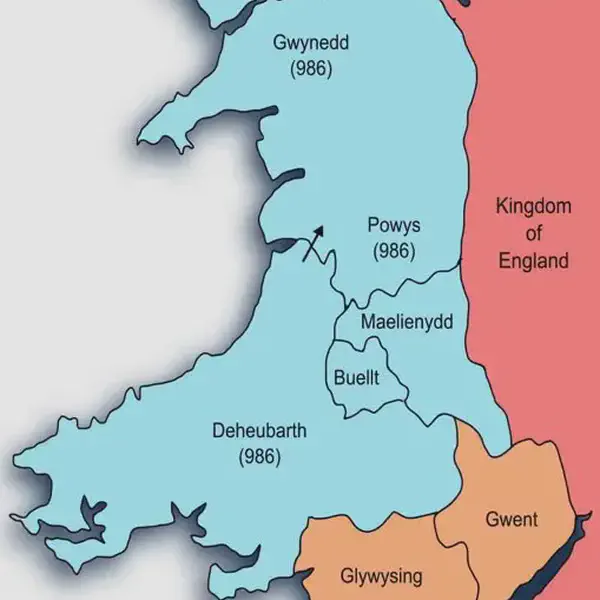
Invading English Army Destroyed by Llywelen II at Battle of Moel-Y-Don
November 06, 1282
Llywelyn ap Gruffudd (c. 1223 – 11 December 1282), sometimes written as Llywelyn ap Gruffydd, also known as Llywelyn the Last was the native Prince of Wales from 1258 until his death at Cilmeri on December 11, 1282.
Llywelyn was the son of Gruffydd ap Llywelyn Fawr and grandson of Llywelyn the Great, and he was one of the last native and independent princes of Wales before its conquest by Edward I of England and English rule in Wales that followed, until Owain Glyndŵr held the title during the Welsh Revolt of 1400–1415.
Llewellyns brother, Dafydd, who had allied with Edward I, suddenly abandoned his alliance in 1282, and war broke out again.
Dafydd, who was discontented with the reward he had received from Edward in 1277. This attack on the English, forcing Llewellyn to join his brother Dafydd.
It became a national struggle enjoying wide support among the Welsh, who were provoked particularly by Edward’s attempts to impose English law on the Welsh. Edward I, however, soon began to see it as a war of conquest rather than just a punitive expedition to put down a rebellion.
The English launched a three-pronged attack, with Edward leading his army into North Wales along much the same route as in 1277, Roger Mortimer operating in mid-Wales and the Earl of Gloucester advancing with a substantial army in the south.
Initially the Welsh were successful. In June 1282, Gloucester was defeated at the Battle of Llandeilo Fawr. Edward replaced him with William de Valence, Earl of Pembroke who raided in the south as far as Aberystwyth but failed to engage with a Welsh army.
Edward I then suffered a set-back in mid-Wales when his commander there, Roger Mortimer, died in October.
On 6 November, while John Peckham, Archbishop of Canterbury, was conducting peace negotiations, Luke de Tany, Edward’s commander in Anglesey, decided to carry out a surprise attack.
Shortly after Tany and his men had crossed over a pontoon bridge they had built to the mainland, they were ambushed by the Welsh and suffered heavy losses at the Battle of Moel-y-don
While Llywelyn ap Gruffudd had some initial successes in his resistance against the English, he faced challenges in maintaining Welsh independence.
Unfortunately, Llywelyn ap Gruffudd was killed at the Battle of Orewin Bridgeon on December 11, 1282, marking a turning point in the conflict. His death and the subsequent capture of his brother Dafydd by the English ultimately led to the subjugation of Wales by the English Crown.